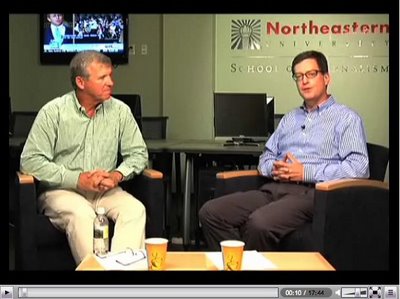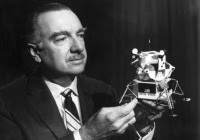
Photo (cc) 1968 by Fred Mason / Liberation News Service
I listened to Louis Menand’s New Yorker essay on why the public has lost faith in journalism while I was at the gym Thursday. It’s free, and I recommend it. Among other things, Menand reminds us of how insular, racist and sexist the Washington press corps was until very recently. He writes:
The two main social organizations for Washington journalists were the Gridiron Club (founded in 1885) and the National Press Club (founded in 1908). The Gridiron invited members’ wives to a dinner in 1896, but a skit lampooning the suffrage movement did not go over well, and women were not allowed back until 1972. Into the nineteen-fifties, members performed in blackface for entertainment at Gridiron dinners. [Kathryn J.] McGarr [in her book “City of Newsmen”] reports that the club’s signature tune was “The Watermelon Song,” sung in dialect.
Good Lord. Menand’s principal focus, though, is on the chaotic 1968 Democratic National Convention in Chicago, that infamous gathering where the city’s police force beat up and brutalized antiwar protesters, leading to a backlash that swept Richard Nixon into the White House. In Menand’s telling, the two major television networks (CBS and NBC; ABC was barely a force back then) provided little coverage of the protests, devoting nearly all of their airtime to the convention proceedings themselves.
Their treatment of Mayor Richard Daley, the conservative Democrat who unleashed the police on the demonstrators, was fawning and obsequious. For instance, Menand tells us that the legendary CBS anchor Walter Cronkite began an interview with the mayor by saying, “I can tell you this, Mr. Daley, that you have a lot of supporters around the country as well as in Chicago.” Cronkite also allowed Daley to accuse reporters who’d been victims of police brutality of “being plants of the antiwar movement.”
Despite this, a narrative emerged that the news media had actually sympathized with the protesters and had taken their side against the police and the mayor. How did this happen? Menand argues it was because the media had covered the convention and the protests in a neutral, objective manner, when what much of the public really wanted was condemnation of the hippies, the Yippies and the entire long-haired youth culture, which they hated because they didn’t understand it. “It is said that objectivity is what we need more of, but that’s not what people want,” Menand writes. “What people want is advocacy.”
And so it is, he argues, down to the present day. The legacy of Chicago, he tells us, is timid television journalism afraid to offend conservatives as well as endemic distrust in the media.
I do have a bone to pick with Menand. He stacks the deck in making his argument that the public has lost faith in journalism, observing that it has fallen from the 72% who said they trusted the media in 1976 to just 34% today — and only 14% among Republicans. That’s factually accurate, but not quite true. What Menand leaves out is that, according to Gallup, 70% of Democrats currently trust the media, and that trust has never fallen below 50%, even in the recent low years of 2000 and 2016.
What surveys have really found over the years is that people trust the media that they use. If you ask someone — even a Republican among that 14% — whether they trust the media that they consume on a regular basis, they’re going to say yes. Otherwise, why would they waste their time? Of course, the media outlets in question are going to tilt toward Fox News and its ilk. The point, though, is that the media have split into ideological camps. Democrats, liberals and most moderates have at least some degree of trust in the mainstream media, flawed though they are. And Republicans, conservatives and the extreme right similarly trust what they consume.
The larger challenge is that the mainstream media, broadly liberal on culture though often mindlessly neutral on politics, continue to practice what Bill Kovach and Tom Rosenstiel, in “The Elements of Journalism,” describe as “a discipline of verification,” trying to get it right and correcting themselves when they don’t. On the other side is a right-wing media machine that consists mainly of weaponized propaganda and, increasingly, outright falsehoods — about the 2020 election, about COVID, about schoolchildren who relieve themselves in litter boxes, for God’s sake — repeated over and over.
Americans haven’t lost faith in “the media” because there is no such thing as the media, as there were, more or less, in 1968, or 1976. Today there are multiple medias (to make a plural out of a plural), each catering to their own niche. We live in a post-truth environment, and it’s tearing us apart.
Still, Menand has written a worthwhile overview of what has happened to journalism over the past half-century, quoting media observers from Michael Schudson to Margaret Sullivan. If you want to know how we got to where we are today, you could do worse than to spend some time with this piece.





